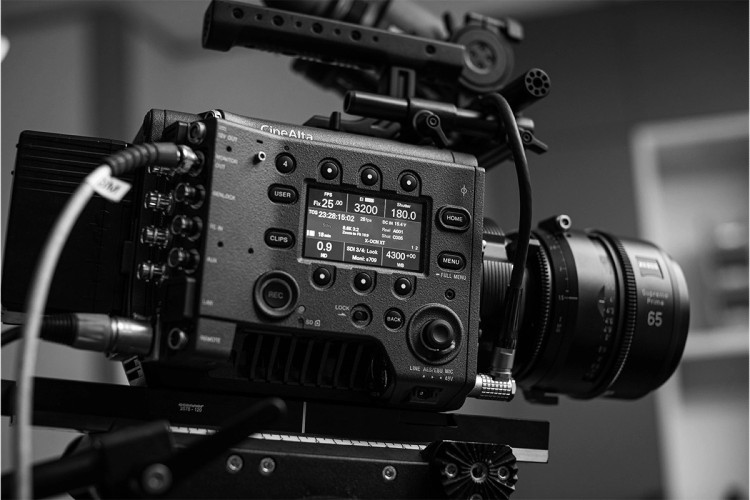The best job in the Met
Author: Dennis Lennie
Published 1st February 2010
If you have ever wondered “How did they do that?” when you watch the car chase in Spooks or the gun fight in Ashes to Ashes or even the thrilling gun shot scene at Waterloo Station in Bourne Ultimatum, then you may want to talk to the Metropolitan Police Service Film Unit (MPS FU).
“COPS FORM A LUVVY SQUAD” was how one red-top newspaper commented on the Metropolitan Police Service creating a dedicated Film Unit in 2005. However far from being a joke department, the MPS Film Unit has now established itself as a great source of information and advice for film makers in London. Over the last 4 years, the MPS Film Unit has become a one-stop-shop for advice to film and TV productions on how to film in London’s streets from a police perspective. PC Alan Cousins, who helped set up the Unit and now runs it from a small police office in Victoria, has more than 28 years of police service experience with the Met. I met up with him recently to find out more about the Unit and how it operates.
Joining the Met in 1981, Alan worked in various areas of West London, doing the usual day-to-day duties of a PC. In 1988 he joined the Met’s Traffic Police where he then worked for more than 17 years covering such duties as fatal collision investigation and goods vehicle enforcement. During this time he built up a great knowledge of traffic legislation as well as a good understanding of road related health and safety issues, whilst patrolling London’s streets on a Police Motorcycle or in a Police Traffic Car.
The original desire for a dedicated film unit within the Police came in 2004, when the film and TV industry, through Film London’s Partnership Task Force approached the Met asking for a more consistent response to filming by Police. At that time, the then Assistant Commissioner Stephen House made a very positive statement about film making in London and made a commitment to set up the unit.
Now with several hundred film credits to their name, the Unit has worked on such productions as Hot Fuzz, Eastern Promises, the Harry Potter series and even a small scene in Mamma Mia. This year they have supplied advice and assistance to Michael Caine’s Harry Brown, Terry Gilliam’s Doctor Parnassus and the forthcoming action movie London Boulevard, staring Colin Farrell and Keira Knightley.
Their TV credits are even more impressive, with nearly every police drama or crime thriller at some time passing through their Unit. Talkback Thames’ The Bill clearly provides a large chunk of their work and they often are involved with TV commercials, pop promos and foreign productions wishing to film in the UK.
“We offer several services to the industry”, says PC Alan Cousins. “Firstly we can advise on the logistics of filming in the street or public areas and although filming is not an illegal activity in London it is how productions want to complete their filming that can need careful consideration.”
“Once a film crew have established what they wish to achieve there are several reasons why we might want to be more involved in the planning and execution of those scenes. The use of firearms and weapons in filming often requires a police presence behind the camera, for the reassurance of the community and to provide some good control measures on scene. Actors dressed as Police and the use of pseudo police vehicles also falls within our jurisdiction” he explains. “If a crime is to be staged for a drama series or if there are smoke effects or other pyrotechnics, this can lead to confusion and distress to the community and could be followed by genuine calls to Police from the public, who may not realise this is a filming event. In order to avoid such matters, we would always want to know what is happening, before the day”
PC Cousins often attends filming activities across London to give that assistance and has now built up a good relationship with the industry. “Location Managers usually contact me when they first decide what and where they intend to film,” he says “and I now have a good appreciation of what the industry is often trying to achieve and can advise accordingly. Most of what they wish to do is possible, on occasions a small modification to their plans can make a scene much more achievable and in the long run, so much safer.”
Alan goes on to say, “We can also offer technical guidance to script writers and art departments on police related subjects. Through New Scotland Yard, we can arrange research interviews with specialist units and officers to give current advice about police procedures and protocols to ensure their productions are accurate.”
Alan believes he is the only dedicated Police Film Officer in the UK and as such has had several enquiries seeking advice from other forces as far-a-field as Manchester, Northern Ireland and even Strathclyde! In addition to his work directly with the industry, he sits on the Film Industry Safety Group, who meets regularly to discuss health and safety issues within the industry. Alan is also very keen to liaise directly with Guilds and Associations in the industry to pass on his views and discuss issues with the professionals. “Over the last couple of years I have delivered a number of presentations to the Guild of TV Cameramen, the BBC Safety Team and at Health and Safety Events at Pinewood Studios”, he says. “I regularly attend meetings with the Guild of Location Managers and have a good working relationship with the Production Guild of Great Britain, the Assistant Directors Association and the UK Film Council. But I especially like to talk to the up-and-coming student film makers and have attended the London College of Communication and National Film and Television School in Beaconsfield a number of times.” Alan continues,”It is particularly rewarding to give a presentation to students only to then liaise with them the following year as they embark on their future fulltime careers.”
Giving advice on legislation is not without its problems and Alan’s favourite topic is filming on the move. “If the camera is to be either fixed on or in a moving vehicle, there is a myriad of legislation that could cause concern to a production,” he says. Tracking shots and low loader work to achieve scenes of moving vehicles often require the added control measure of motorcycle escorts to ensure a safe environment for all and this is a subject matter in which Alan has a wealth of experience, as he is regularly one of those outriders.
“Often a production needs to get close-up shots or dialogue scenes with vehicle occupants and so there are various ways to achieve these”, says Alan. “Clearly there is a very healthy industry supplying tracking vehicles to these productions but even on very limited budgets there are subtle methods that are both safe and legal. I work very closely with some of the larger tracking companies and now have a good working relationship with their vehicle drivers. This means that when out on the road filming we all have a better understanding of how we each work, which can only make things safer and more efficient.”
One of many stories Alan tells of ambitious and complicated scenes that he helped to achieve was for a fictional ITV drama ‘Whistleblower’. “The scene required a young school boy to jump off a bridge onto a dual carriageway below. Clearly this was an emotive scene involving stunt performers and stunt equipment and one that would need some good communication with the right authorities in London. After some in depth liaison meetings with the highway authorities, local bus companies and London Council, we were able to achieve a very realistic but safe scene with little disruption to the travelling public in London”. He continues, “Car chases are always on the wish list of big productions but we are fortunate in London to have some new legislation available to permit full closures of roads for filming. Although this can require some delicate negotiations with the right authorities and departments, it just goes to show how supportive London is to encourage film making.”
Scenes for Bourne Ultimatum in and around Waterloo Station in London created some consternation from a police point of view. “Sam Breckman, the Location Manager approached all the interested parties at a very early stage to seek various permissions to film some great actions scenes. However it was these early discussions that led to a recommendation from us, that the crew “piggy-back” some forthcoming roadwork’s closures further down the road. This resulted in the main road outside the Station being completely free from traffic for use by the film crew and resulted in some great cinema, again with no additional disruption to traffic. All this with a crew of 250 and 300 extras!”
Alan clearly enjoys his work, “I am often asked by other officers how I got “the best job in the Met” and I am very pleased to work with some professional and knowledgeable members of the industry. Every day is different and the diverse questions asked by productions can be quite challenging at times. I pride myself in only saying an emphatic “no” to one production in the past 4 years and that was because they wanted a police officer character to be shot dead right outside New Scotland Yard - and this was for a comedy show ! I didn’t think this scene was particularly appropriate; however I was able to assist with the same scene to be filmed at a different location away from my bosses. I do not think it was ever transmitted, but I guess it wasn’t particularly funny.”
PC Alan Cousins is always happy to talk over plans with productions and can be contacted through the Metropolitan Police Film Unit via filmunit@met.police.uk There is also some great advice to be found at their web site www.met.polic.uk/filmunt
So next time you see a large street fight on The Bill, now you know that PC Cousins or one of his colleagues is likely to be there, behind the camera, keeping an eye on proceedings.


























